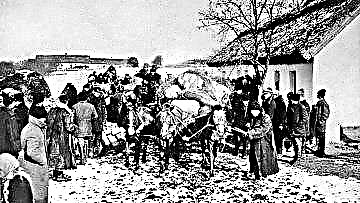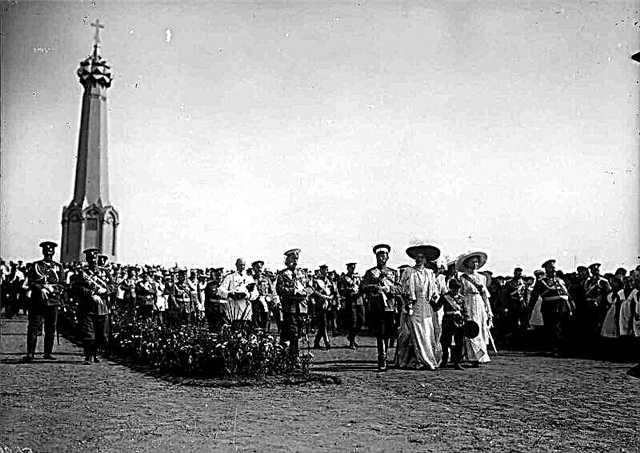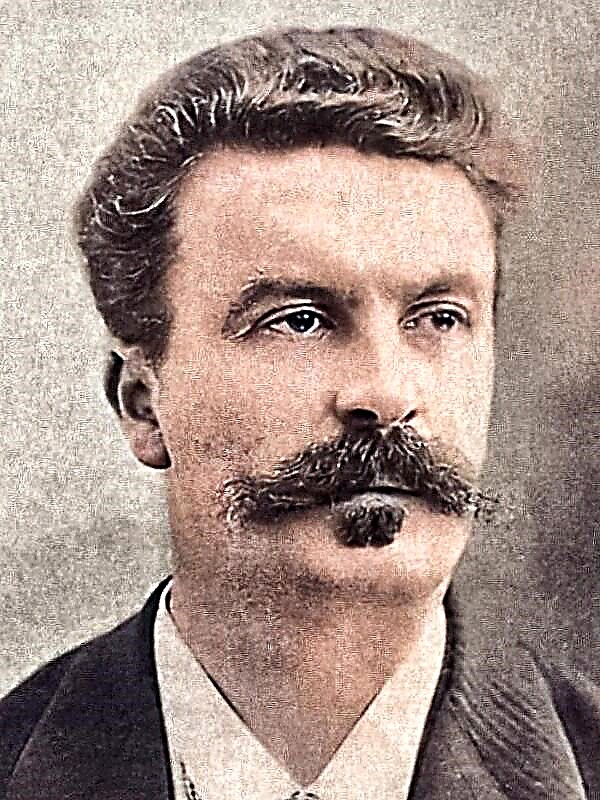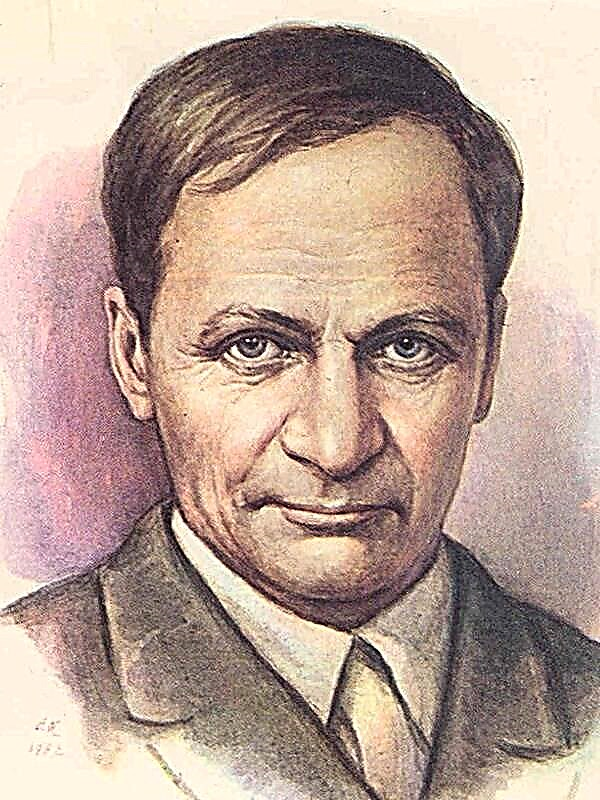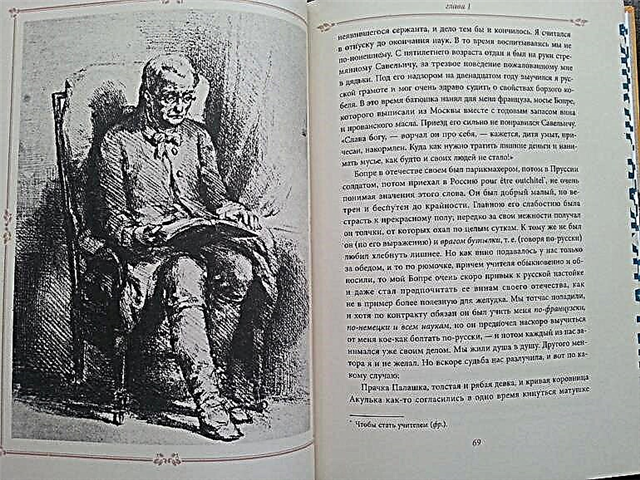Real business is far from being a continuous path from success to success. Failures and crises are his natural companions. In 1998, Dmitry Agarunov lost his business, owed a million dollars and undermined his health. Nevertheless, he managed to create a large successful media company that has survived more than one crisis since then.
His book, on the one hand, is a real life story of a businessman in Russia, no less exciting than a fictional thriller. On the other hand, this is a practical guide for an entrepreneur. The author shows how the leader to respond to problems, change and adapt. The compendium contains lessons that Dmitry learned from crisis situations.
Chapter 1. The crisis is for everyone, but not for me
At any moment, and especially during a crisis, one must be ready to discard past experience, no matter how successful it may be. If a business made a profit yesterday, this does not mean that it will be so tomorrow, and even more so the day after tomorrow. In business, you need to accept the existing rules of the game and work with what you have, and not complain about external circumstances.
An example is crime and corruption, which cannot be eradicated on their own. If profits fall or not at all, close the business. No profit - no business. Do not rest on your laurels. It is necessary to carefully monitor the situation on the market and in the economy as a whole. You need to constantly learn.
Chapter 2. Taxed
In a crisis, everything collapses, all weaknesses are exposed both in business and in personal life. You should not expect that people with problems will help you. It is very important (perhaps the most important) - to quickly recognize the fact of a new reality, part with the past, say goodbye to losses.
Yesterday’s needs are becoming irrelevant, trends stop working. New needs and trends are emerging. You need to look at the new reality with the fresh look of a person who has just entered the market.
A businessman needs both applied knowledge (industry expertise, finance, personnel management
Chapter 3. Victim
The way out of the crisis: exactly what the author did
- He quickly parted with the previous paradigm and adjusted his activities taking into account the changing demands of the market.
- He did not allow the leakage of funds at a critical moment, suspending the payment of salaries and payables.
- He achieved restructuring of debts to suppliers, while at the same time making efforts to collect receivables.
- He tied the salaries of a number of employees to the generated revenue and initiated the launch of entrepreneurial startups within the company; formulated clear rules for the distribution of profits.
- He put tight control over cash flow and the formation of a cash pillow.
The crisis is a sharp change in external conditions. It changes both business and relationships between people. You should immediately part with people who do not value you and behave insufficiently loyally and decently. Thinking about them, wasting your mental strength is wasteful.
The business owner is the most important resource of the company, the key to its preservation and transformation. Taking care of yourself as an important resource is a priority for an entrepreneur. The crisis turns the best employees of the company into internal entrepreneurs.
Chapter 4. Investors
In a crisis, the value of the company decreases, which means that there comes a favorable moment to buy it at a bargain price. We need to hire strong investment lawyers without sparing money.
The obligation of the entrepreneur is to protect his interests (both financial and influence on corporate decisions). Accepting investments, you need to ensure full control over the company in advance, which means that you need to use special tools - restricting the right to vote on the board of directors and interfering in operational management. It is worthwhile to set aside money in advance for the repurchase of your share in case of a disagreement of interests with the investor.
Investors (both financial and non-financial) have diverse interests and their own paradigms. The coincidence of interests in the pre-crisis time, which led to partnership, does not mean the coincidence of your views on business and strategy after the crisis. You should not consider investors as partners whose goals and objectives coincide with yours.
Chapter 5. Paradigm shift
As a rule, a crisis is accompanied by a paradigm shift in consumption and doing business. Analytical methods do not allow to predict a paradigm shift in the market. Choosing a new industry or business model is never obvious. Sharp movements, such as a change of industry, are risky.
The most profitable way is to focus on your strengths, use the acquired experience in a new paradigm, and master new skills in addition to existing ones. Changing the paradigm of business, you should not rely on quick profits. It is better to launch new projects at a time when old ones still bring profit and allow you to pay for such experiments.
Chapter 6. Cash Flow
Cash flow is the most important indicator of a company's financial health, to which entrepreneurs pay the least attention. The main rule in a crisis is to delay outgoing payments as much as possible, to collect accounts receivable as quickly as possible even with a large discount (or liquid barter).
It is necessary to quickly restructure its debts and receivables: write off, discount. It is important to determine the amount of working capital required (as a rule, it is equal to the revenue for several months) and leave all the profit in the business until the necessary amount is at your disposal. At this time, you should not invest in new projects.
A financial director who wants and can understand the essence of the business is a rarity, therefore it is beneficial for the owner to invest in his own financial education and personally control the cash flow. It is necessary to automate financial reporting and planning, reflecting important financial indicators, attracting world-class consultants. It is cheaper and more reliable than an expensive specialist on a permanent salary.
It is necessary to attract external auditors with a fresh critical look to find errors and modernize reporting. Reporting should be constantly updated - under the structure of the current business. Analysis of existing costs is an important tool for monitoring and understanding the business.
Chapter 7. Top Managers
The crisis makes it possible to identify "parasites" and "predators" and immediately get rid of them, despite the past merits and professionalism of these employees. During a crisis, the top manager needs to be evaluated solely on business - actions, productivity, financial results. You need to fire the top manager, which you can do without now, even if you appreciate his professionalism. You can motivate top managers by offering them a generous share of the profits or a share in the company after overcoming the crisis period.
The role of the business owner in a crisis is growing. It is worth attracting external managers, consultants, and mentors to anti-crisis committees. It must be remembered that the choice of an employee is to sell their labor.You should not expect that in a crisis the situation will change, because the owner of the business or company needs it.
Chapter 8. Employees
Expectations must be realistic. Being a hired employee is a voluntary choice and psychological inclination of many people. You should not consider hired employees as responsible partners who value your business.
It is useful to classify employees according to their response to the crisis - opportunists, whiners and loyal team members who are sensitive to deteriorating conditions. Among the latter category there are those who are ready, if necessary, to learn new skills.
The share of employees loyal to the company usually does not exceed 20% - it is with them that the business will have to be rebuilt under new conditions. You need to encourage constructive criticism and get rid of those who only complain but offer nothing. It is not necessary to convey information about the deterioration of the situation to the whole team if employees cannot influence the situation. If everyone already knows about the problems, then you need to present the worst-case scenario to the team - this will help relieve stress.
With key employees it is worth sharing information in a larger volume. Care should be taken exclusively about loyal and productive employees. Do not waste time, effort and resources on the rest.
Employees (including former, whom you know well) can unobtrusively offer to create their own business and use the company's resources for the first time. At the same time, you should not count on making a profit from these projects. It is worth providing resources for internal entrepreneurial projects only if they are redundant and cannot be reduced. For example, if before the expiration of the lease you cannot refuse part of the space and thus save money.
Chapter 9. Sales
It should distinguish sellers from "fundraisers" (employees serving the existing market). Responsibility for the conclusion of the transaction lies with the entrepreneur. The seller is not a magician, not the smartest and most initiative person in the company. He will not solve the problems associated with the product, marketing, market decline.
Do not allow the seller to lock on the customer. Keep in touch with all key customers. An individual plan and motivation system for each seller is more effective than leveling. It is worth combining sellers with complementary talents in a team and making sure that there is no competition between them.
Do not rely on ready-made specialists - you need to grow your own (at their expense). From a successful seller, a good manager (sales director) is rarely obtained.
Chapter 10. Family
It is necessary to approach the construction of a family and the choice of a wife as a project. Only 5% of men are able to be entrepreneurs, and only 5% of women are suitable for the role of their wives. The chosen one should be even before marriage (and even before meeting) to be determined to support her man, respect him and his mission. It is worth paying attention to how she relates to her father, how her parents interact in difficult times.
Marriage is a kind of transaction in which each of the partners assumes certain obligations. Treat your wife as an investment. Stimulate its development. A strong, active woman strengthens the union. Children are a confirmation of readiness for a long-term relationship. A crisis is a time when a wife, family, and friends are required to support entrepreneurs.
Chapter 11. Caring for Yourself
The habit of not taking care of oneself is a consequence of low self-esteem. It is not necessary to contrast work and personal life, in particular, work should not be considered as a heavy burden, and rest should not be considered as compensation, which is put for all the torment experienced. You need to organize your work so that it does not suck out all the juices from you - especially in times of crisis.
Rest is a great opportunity for learning and self-development.It is important to put yourself in an unusual situation in order to switch from solving everyday issues. It helps to look at them differently.
You should not and cannot be responsible for global well-being. In the end, you are the same person as the rest. The head is the most valuable resource of the company, and its value increases significantly during the crisis. Do not bring yourself to exhaustion - otherwise there is a risk of losing both health and business.
You should carefully monitor your diet. So, say, the author drinks at least 30 g of water per kilogram of body weight per day, eats meat once a week, fish - twice a week, carbohydrates - in the morning, protein - in the evening.
It is necessary to provide yourself with sufficient physical activity. The author rides a bicycle, runs with weighting. Exercise is good not only for blood vessels and muscles - they also have a positive effect on the brain, reduce stress.
Chapter 12. Spiritual and Philosophical Lessons
Spiritual growth is so wonderful that it does not have the highest point at which you can calm down and say that the goal has been achieved. This is the way: no matter how much we learn new, no matter what stage of development we rise, there will always be where to develop and what to learn.
Crisis is a lesson, not a punishment. Any crisis is a natural and natural event, even if it came as a complete surprise to you.
Our world and the laws by which it operates are too complex. Our goal is to learn to recognize these patterns.
To know and be able - these are two different things. It is not necessary to limit oneself to knowledge, but to acquire new habits and practical skills.
We are not given the full formula for governing the world or even the economy. We are given the rules of behavior in the material world. The author believes that it is worth observing them.
Own business is a unique opportunity to apply and study the laws of the universe in practice. Entrepreneurship is not a profession, but a lifestyle associated with great risks and serious training. This is everyone’s personal choice. Development is endless. Perfection is unattainable.



